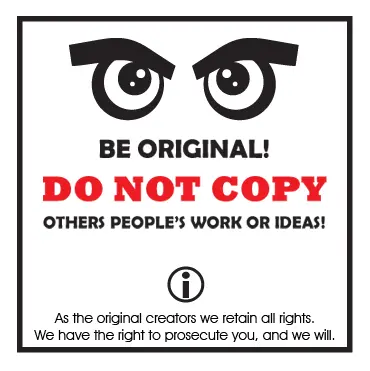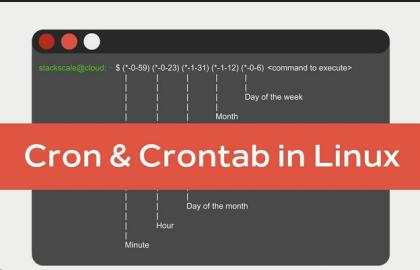
When starting your own CodyChat website—a platform designed for real-time communication, community engagement, or customer support—it’s tempting to replicate the design, features, or branding of an existing successful chat website. However, copying someone else’s CodyChat site can lead to significant pitfalls that jeopardize your project’s success, legal standing, and user trust. Below, we explore the key reasons why you should avoid copying another chat website and instead focus on creating a unique platform, supported by industry insights and best practices.
1. Legal Risks from Copyright and Intellectual Property Violations
- Issue: Copying the design, code, or branding elements of another CodyChat website can violate copyright laws, trademark protections, or intellectual property (IP) rights.
- Why It’s a Problem: Replicating elements like logos, UI layouts, or proprietary features without permission can lead to cease-and-desist letters, lawsuits, or financial penalties. For example, copying a competitor’s chat widget design could infringe on their copyrighted UI or patented functionality, costing you legal fees and forcing a costly redesign.
- Better Approach: Develop original designs and features for your chat website. Consult a legal expert to ensure your branding and code don’t infringe on existing IP. Use open-source libraries or licensed assets with clear usage rights to avoid legal complications.
2. Lack of Differentiation in a Competitive Market
- Issue: A copied CodyChat website will lack unique features or branding, making it indistinguishable from competitors.
- Why It’s a Problem: The chat app market is crowded with platforms like Slack, Discord, and WhatsApp. If your website mimics another, users have no reason to choose yours over the original. For instance, copying a competitor’s group chat interface without adding value fails to attract users seeking innovative solutions, leading to low engagement and retention.
- Better Approach: Identify a niche or unique selling proposition (USP), such as enhanced privacy, industry-specific integrations (e.g., for e-commerce or gaming), or a novel feature like AI-driven chat analytics. Highlight your USP in marketing and UI to stand out.
3. Damage to Brand Reputation and User Trust
- Issue: Copying another website’s design or features can make your CodyChat site appear unoriginal or untrustworthy.
- Why It’s a Problem: Users and businesses value authenticity. If your website looks like a knockoff, it risks being perceived as low-quality or even a scam, especially in a chat platform where trust is critical for handling sensitive conversations. Negative reviews or social media backlash on platforms like X can further harm your reputation.
- Better Approach: Invest in a distinct brand identity with a unique logo, color scheme, and tone that resonates with your target audience. For example, if your chat app targets gamers, design a vibrant, game-inspired UI rather than mimicking a corporate-focused platform.
4. Incompatibility with Your Target Audience’s Needs
- Issue: A copied website may not align with the specific needs or preferences of your intended users.
- Why It’s a Problem: Different audiences require tailored features. For example, copying a customer support-focused chat site like Intercom won’t suit a community-driven platform for hobbyists. This mismatch can lead to poor user engagement, as the copied features may not address your audience’s pain points or expectations.
- Better Approach: Conduct market research to understand your target audience’s needs. For instance, if building for small businesses, prioritize integrations with CRMs like HubSpot. If targeting casual users, focus on ease of use and fun features like emojis or customizable chat themes.
5. Technical Limitations and Maintenance Challenges
- Issue: Copying code or infrastructure from another CodyChat site may lead to adopting outdated or unsuitable technologies.
- Why It’s a Problem: Replicated code may not scale well or may include dependencies that are difficult to maintain. For example, copying a competitor’s WebSocket implementation without understanding its architecture could result in performance issues under high user loads, leading to crashes or slow response times.
- Better Approach: Build your website with a modern, scalable tech stack suited to your goals, such as Node.js with Socket.IO for real-time communication or Firebase for rapid development. Ensure your code is modular and well-documented to simplify future updates.
6. Missed Opportunities for Innovation
- Issue: Copying limits your ability to experiment with new ideas or features that could set your CodyChat website apart.
- Why It’s a Problem: Innovation drives growth in the chat app industry. By copying, you miss the chance to introduce unique features that could attract users or generate buzz. For instance, a competitor’s site might lack advanced chatbot capabilities, which you could have developed to gain a competitive edge.
- Better Approach: Brainstorm features that address unmet needs, such as AI-powered message suggestions, cross-platform integrations, or enhanced accessibility for users with disabilities. Test these ideas in a beta phase to gauge user interest and refine them.
7. SEO and Discoverability Challenges
- Issue: Copying content, such as website text or meta descriptions, can harm your search engine rankings.
- Why It’s a Problem: Search engines like Google penalize duplicate content, reducing your website’s visibility. If your CodyChat site’s landing page copies a competitor’s text, it may rank lower, making it harder for users to find you organically. Additionally, app stores may reject apps with unoriginal descriptions, limiting your reach.
- Better Approach: Create original content for your website and app store listings, using keywords like “real-time chat,” “secure messaging,” or “community platform” to boost SEO and App Store Optimization (ASO). Use tools like Google Keyword Planner to identify high-impact keywords.
8. Ethical Concerns and Industry Perception
- Issue: Copying a competitor’s website raises ethical questions and can harm your standing in the developer community.
- Why It’s a Problem: The tech industry values originality and collaboration. Copying can lead to criticism from peers, potential partners, or investors, limiting opportunities for collaboration or funding. For example, a startup that copies a CodyChat site may struggle to gain traction at industry events or on platforms like X, where authenticity is celebrated.
- Better Approach: Build a reputation for innovation by contributing to open-source communities or sharing your development journey. Engage with users and developers on platforms like X to build credibility and attract early adopters.
Conclusion
Copying someone else’s CodyChat website may seem like a shortcut, but it comes with significant risks, including legal issues, lack of differentiation, and damage to your brand’s reputation. Instead, focus on creating an original platform that addresses your audience’s unique needs, leverages modern technologies, and showcases your brand’s identity. By investing in authenticity, innovation, and user-centric design, you can build a CodyChat website that stands out, attracts users, and fosters long-term success in the competitive world of real-time communication.
Leave a comment
Your email address will not be published. Required fields are marked *








